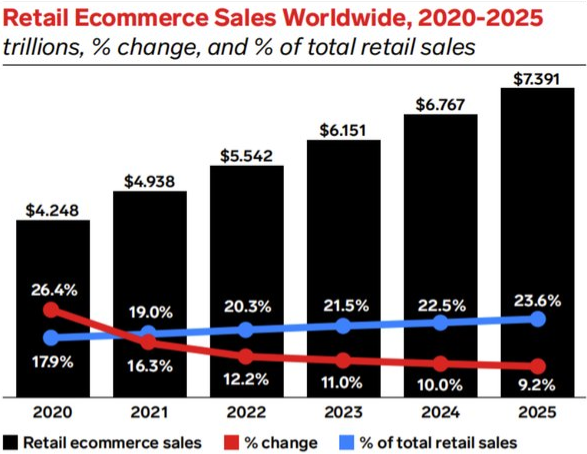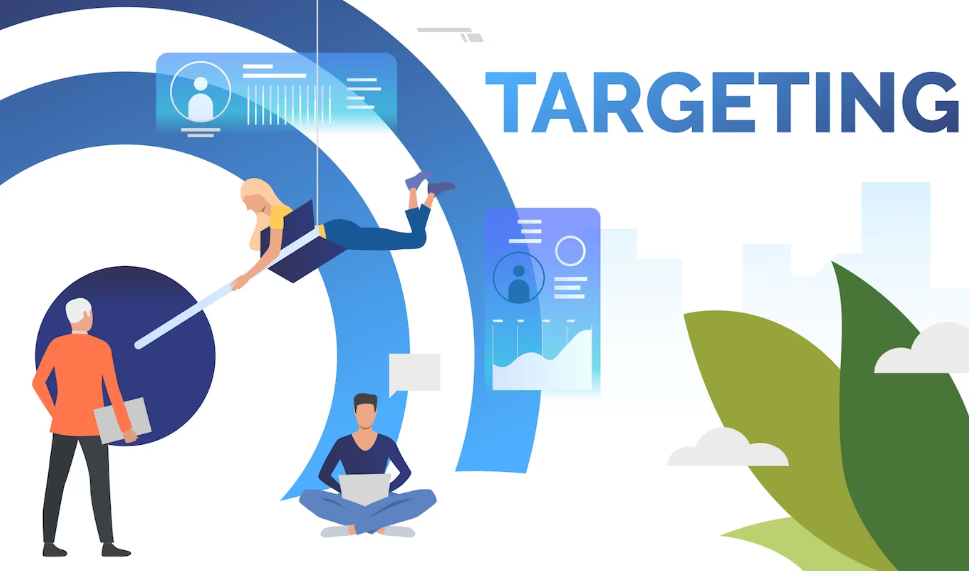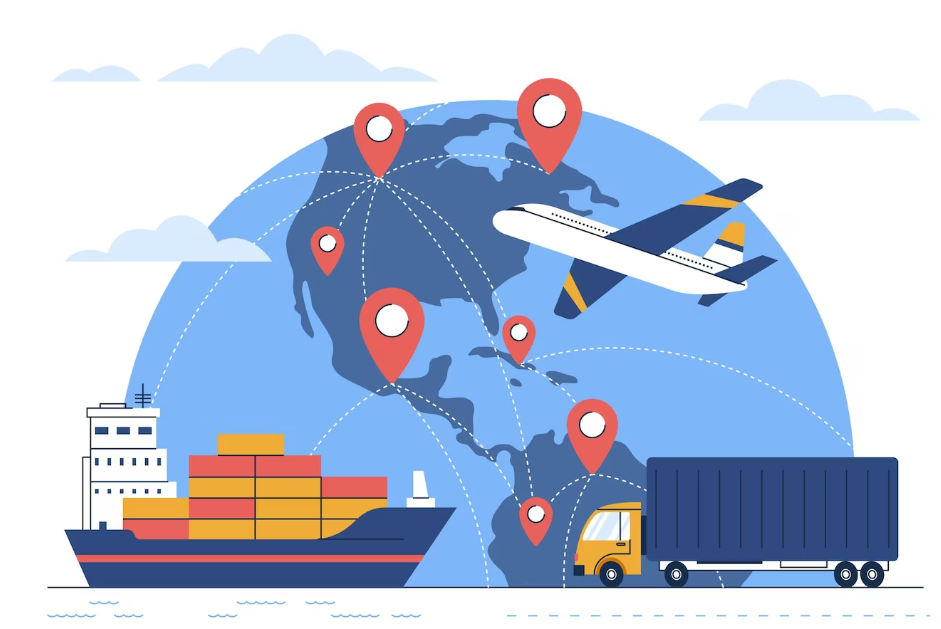How to implement Cookie Consent for GTM & Google Analytics in Magento Under GDPR?
Implement cookie consent for GTM & GA4 in Magento under GDPR. Step-by-step guide using Google Consent Mode v2 to avoid fines and maintain analytics.

E-commerce has become a viral trend in the business world in recent years. Everything is changing from offline to online rapidly, eliminating companies that resist adapting to this new era. More and more people prefer to shop online rather than take the time to go to an offline store or spend cash on purchases.
However, benefits always come with challenges. So, if you are wondering whether to join this competition or is e-commerce worth it, our blog will give you an answer. We will analyze what you can benefit from e-commerce as well as the risks you might face, preparing for every upcoming situation so that you can avoid it and increase your success chances as much as possible.
Most people consider worth as profits. When you’re asked, “Is e-commerce worth it?” you’re probably thinking about the cash it brings in. If it’s raking in a nice sum, then it’s definitely worth it. So, let’s delve into how lucrative e-commerce can be!
Indeed, e-commerce can be a money-maker, but there are many variables we must ponder. We can’t overlook factors such as the business model, niche, target audience, competition, marketing tactics, and more.

Source: eMarketer Jan 2022
E-commerce profitability in figures:
E-commerce is widely recognized as a means for all business sizes to access new markets and expand their operations. The industry data strongly supports the notion that e-commerce is a profitable long-term solution for businesses, answering the question, “Is e-commerce profitable?”

Beyond the potential revenue that e-commerce offers, it’s crucial to examine its importance to find out the answer for “is e-commerce worth it?”

This is the next question you need to ask yourself if you want the answer for: “is e-commerce worth it?”. Understanding your target market offers numerous benefits, such as setting specific goals, optimizing marketing efforts, saving time and costs, enabling easy tracking, improving conversions, enhancing brand value, and elevating the overall customer experience. Hence, it’s a wise move to identify your business’s target market before diving into any venture.
To effectively pinpoint your target audience and market, you’ll need to follow several essential steps:
1. Define Your Purpose:
Begin by clearly defining what your brand represents and how your products can address the needs of your customers. Consider this example: If your online store specializes in dietary supplements for athletes aiming to either gain or lose weight, your products directly cater to the needs of athletes who rely on supplements. In this scenario, your target audience might include individuals like James, who is dedicated to intense workouts, consumes protein shakes, and seeks more effective and fulfilling supplements. Identifying the problems your product solves can naturally guide you toward selecting a well-suited target audience. Understand what your products offer, and you’ll automatically determine your potential target audience.
2. Filter your audience
Once you’ve recognized that your e-commerce target market should encompass athletes and bodybuilders, it’s time to refine your target audience further. This entails distinguishing potential customers from those who are less likely to be interested. Consider implementing filters based on factors such as:
You can adapt and refine these demographics based on your e-commerce target audience’s characteristics. Creating detailed buyer personas can be challenging but highly valuable in this context.
3. Keep track
Many e-commerce business owners overlook the power of continuous analysis. It’s a common misconception that once effort is invested, positive results will inevitably follow. However, this isn’t always the case. Regularly monitor how your targeting efforts are performing on a daily basis.
Keep a vigilant eye on whether your segmented target audience is responding as anticipated. Gather valuable data and compare it with previous year reports, recent data, and information from competitors.
4. Evaluate
Evaluation is the linchpin of this entire process and should not be confused with tracking. While tracking involves monitoring and data collection, evaluation revolves around devising solutions and taking action.
After collecting your data, what steps will you take to drive improvement? Where will you focus your efforts? Evaluating your tracked data empowers you to make effective changes that lead to enhanced e-commerce growth.

It can be really tempting to earn some extra income with e-commerce, and it’s even a strong proof of what makes e-commerce important. In fact, most entrepreneurs use their savings to kickstart it. According to a survey by JungleScout, a majority of Amazon sellers spend thousands of dollars to launch their e-commerce venture. But that’s not all; you also need to budget for ongoing costs.
Here’s where your money goes:
Keep in mind these are just the basics. There are other expenses, like marketing and legal, and unforeseen costs. On average, expect about $40,000 in your first year.
Staying on top of sales tax and understanding W2 tax deductions is crucial. If this sounds like a lot, our estimate for starting an e-commerce business is around $2,500, much less than the norm. If that’s still steep, maybe hold off on e-commerce for now. Timing is everything.

Running an e-commerce business might not be all sunshine and beachside lounging. In reality, it demands significant time and effort. Nearly half of Amazon sellers spend 4 to 20 hours per week on their e-commerce ventures, with 62% managing their businesses alongside full-time jobs. Moreover, the number of side hustlers dedicating over 15 hours weekly has more than doubled in a year.
Balancing an e-commerce business means cutting back on family time, leisure activities, sleep, and exercise. You’re essentially always on duty, without the luxury of vacation or personal time. This is because managing your business involves various tasks, including manufacturing, inventory management, customer service, and digital marketing.
Even established businesses like Thrasio invest significant time in optimization, which can be demanding. The potential for burnout is real, with 47% of small business owners feeling physically or emotionally drained after two years of the pandemic.
To avoid burnout:
So, do you have enough time for e-commerce?

While you might be enticed by a budget-friendly hosting plan that partially meets your needs, it’s crucial to conduct research before committing. Changing hosts can be troublesome for both you and your customers. Consider the following factors:
Budget
E-commerce hosts offer competitive packages, but you need to determine if they are genuinely cost-effective. More significant expenditure doesn’t always equate to a better experience. Conversely, opting for the cheapest option often necessitates additional expenses from other providers, making it the costliest route. Decide on your budget for essential features before selecting an e-commerce host.
Web Design
Your store’s web design, from the landing page to checkout, should create a distinctive user experience that reflects your brand and fosters customer loyalty. Many major e-commerce platforms provide a range of themes, some free and others priced from $60 to $200 each. Additionally, you may require add-ons, plugins, or extensions, incurring extra costs.
Programming and functionality
Custom e-commerce functionality, backend programming, and coding are significant expenses but essential for efficient operation and staying competitive. Backend programming costs can vary from $2,000 to $75,000, while third-party integrations range from $500 to $20,000, depending on your business size.
Security
Safeguarding your data and customer information is paramount. Opt for a platform that ensures secure payment processing and data management to avoid potential financial losses and customer trust erosion.
Monthly hosting
Cloud-hosted platforms like BigCommerce often include web hosting in the monthly subscription, eliminating the need for third-party hosting. However, if you prefer to self-host or use a platform without hosting included, costs can range from $80 to $730 per month, contingent on factors like web traffic and site features.
Maintenance
Building an e-commerce website isn’t a one-time expense. You’ll need to allocate funds for ongoing site maintenance. This includes annual expenses like domain name renewal and hosting fees, as well as other fees like SSL certificates.
For a more comprehensive analysis of the most used platforms in the e-commerce market, check out Top 12 B2B e-commerce Platforms for Advancing Your Business.
In 2022, the significance of having a top-tier brand and an aesthetically pleasing website cannot be emphasized enough. Social media users are increasingly inundated with retail advertisements, and with each passing year, more individuals embark on their own online ventures.
What does this imply? Advertising expenses are on the rise. This year alone, Facebook’s average Cost Per Click (CPC) has escalated to $0.44, up from $0.38 in 2021, as reported by AdEspresso. Acquiring customers is becoming a pricier endeavor.
Hence, it is imperative that your product offerings and e-commerce store are finely tuned for conversions, user-friendly, and exquisitely designed. If you’re seeking efficient e-commerce tools, don’t hesitate to contact us for professional services and support.
If you’re ready for this competition and got the answer to the question “is e-commerce valuable?”, then let’s move to the next part.

After carefully considering the above questions and you’re ready to start your own e-commerce business, logistics and shipping would be the next aspect to pay attention to.
Providing your customers with appropriate shipping rates and choices is paramount for sustained success as a retailer. It can sometimes seem akin to a delicate balancing act, where overcharging might deter customers while undercharging might lead to losses. However, it’s not solely about pricing. Furnishing the correct shipping alternatives at the opportune moments can mitigate shopping cart abandonment and bolster revenue.
This encompasses:
After all preparations are in place, one crucial aspect that can significantly influence the prosperity of your e-commerce enterprise is your comprehension of legal and regulatory obligations.
Much like any other form of online business, adhering to general corporate laws as well as local and international regulations pertinent to your business is essential. Moreover, you must adhere to digital-specific regulations related to web accessibility, data privacy, and electronic payment processing, which may be applicable to your online store.
To ensure you stay on the right side of the law, it’s vital to invest time in understanding the do’s and don’ts in areas such as
In short, based on the importance and potential profitability of e-commerce, it is surely a worthy choice. However, not everyone is lucky enough to succeed right at the first time. What we can do is evaluate things that might happen for better preparation. Ask yourself the above questions before coming to any decision may save you from a lot of problems.